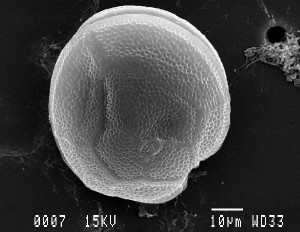To raise awareness about a resurgence of ciguatera fish poisoning (CFP) in the Caribbean and the current state of ciguatera research, NOAA’s National Centers for Coastal Ocean Science (NCCOS) led a special session on ciguatera at the Association of Marine Laboratories of the Caribbean 37th Scientific Conference in Willemstad, Curaçao, during the week of May 18–22, 2015. Data presented from the Caribbean Epidemiology Centre indicated that ciguatera incidence in the region has increased 300% over the last 31 years.

Talks featured ECOHAB-funded advances in understanding the ecology of the causative toxic algal species Gambierdiscus and its response to environmental changes including warming sea surface temperatures. Speakers shared findings on ciguatera toxin concentrations in invasive lionfish and whether fishing can be used to reduce the damage they cause to reef ecosystems. They discussed their advancing efforts on standardizing ciguatera monitoring, CFP predictive capabilities, and facilitating better awareness and management of CFP risk in Caribbean fisheries. The session reviewed how these projects advance NOAA HAB program goals and highlighted a recently adopted multidisciplinary global strategy to improve the detection, monitoring and prediction of causative organisms and toxins and the epidemiology of CFP.
For more information, contact Marc.Suddleson@noaa.gov or Wayne.Litaker@noaa.gov.
